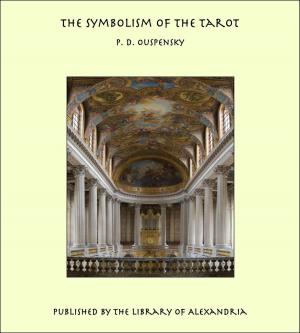The Young Emperor, William II of Germany: A Study in Character Development on a Throne
Nonfiction, Religion & Spirituality, New Age, History, Fiction & Literature| Author: | Harold Frederic | ISBN: | 9781465627476 |
| Publisher: | Library of Alexandria | Publication: | March 8, 2015 |
| Imprint: | Language: | English |
| Author: | Harold Frederic |
| ISBN: | 9781465627476 |
| Publisher: | Library of Alexandria |
| Publication: | March 8, 2015 |
| Imprint: | |
| Language: | English |
In June of 1888, an army of workmen were toiling in the Champ de Mars upon the foundations of a noble World’s Exhibition, planned to celebrate the centenary of the death by violence of the Divine Right of Kings. Four thousand miles westward, in the city of Chicago, some seven hundred delegates were assembled in National Convention, to select the twenty-third President of a great Republic, which also stood upon the threshold of its hundredth birthday. These were both suggestive facts, full of hopeful and inspiring thoughts to the serious mind. Considered together by themselves they seemed very eloquent proofs of the progress which Liberty, Enlightenment, the Rights of Man, and other admirable abstractions spelled with capital letters, had made during the century. But, unfortunately or otherwise, history will not take them by themselves. That same June of 1888 witnessed a spectacle of quite another sort in a third large city—a spectacle which gave the lie direct to everything that Paris and Chicago seemed to say. This sharp and clamorous note of contradiction came from Berlin, where a helmeted and crimson-cloaked young man, still in his thirtieth year, stood erect on a throne, surrounded by the bowing forms of twenty ruling sovereigns, and proclaimed, with the harsh, peremptory voice of a drill-sergeant, that he was a War Lord, a Mailed Hand of Providence, and a sovereign specially conceived, created, and invested with power by God, for the personal government of some fifty millions of people. It is much to be feared that, in the ears of the muse of history, the resounding shrillness of this voice drowned alike the noise of the hammers on the banks of the Seine and the cheering of the delegates at Chicago. Any man, standing on that throne in the White Saloon of the old Schloss at Berlin, would have to be a good deal considered by his fellow-creatures. Even if we put aside the tremendous international importance of the position of a German Emperor, in that gravely open question of peace or war, he must compel attention as the visible embodiment of a fact, the existence of which those who like it least must still recognize. This is the fact: that the Hohenzollerns, having done many notable things in other times, have in our day revivified and popularized the monarchical idea, not only in Germany, but to a considerable extent elsewhere throughout Europe. It is too much to say, perhaps, that they have made it beloved in any quarter which was hostile before. But they have brought it to the front under new conditions, and secured for it admiring notice as the mainspring of a most efficient, exact, vigorous, and competent system of government. They have made an Empire with it—a magnificent modern machine, in which army and civil service and subsidiary federal administrations all move together like the wheels of a watch. Under the impulse of this idea they have not only brought governmental order out of the old-time chaos of German divisions and dissensions, but they have given their subjects a public service, which, taken all in all, is more effective and well-ordered than its equivalent produced by popular institutions in America, France, or England, and they have built up a fighting force for the protection of German frontiers which is at once the marvel and the terror of Europe. Thus they have, as has been said, rescued the ancient and time-worn function of kingship from the contempt and odium into which it had fallen during the first half of the century, and rendered it once more respectable in the eyes of a utilitarian world. But it is not enough to be useful, diligent, and capable. If it were, the Orleans Princes might still be living in the Tuileries. A kingly race, to maintain or increase its strength, must appeal to the national imagination. The Hohenzollerns have been able to do this.
In June of 1888, an army of workmen were toiling in the Champ de Mars upon the foundations of a noble World’s Exhibition, planned to celebrate the centenary of the death by violence of the Divine Right of Kings. Four thousand miles westward, in the city of Chicago, some seven hundred delegates were assembled in National Convention, to select the twenty-third President of a great Republic, which also stood upon the threshold of its hundredth birthday. These were both suggestive facts, full of hopeful and inspiring thoughts to the serious mind. Considered together by themselves they seemed very eloquent proofs of the progress which Liberty, Enlightenment, the Rights of Man, and other admirable abstractions spelled with capital letters, had made during the century. But, unfortunately or otherwise, history will not take them by themselves. That same June of 1888 witnessed a spectacle of quite another sort in a third large city—a spectacle which gave the lie direct to everything that Paris and Chicago seemed to say. This sharp and clamorous note of contradiction came from Berlin, where a helmeted and crimson-cloaked young man, still in his thirtieth year, stood erect on a throne, surrounded by the bowing forms of twenty ruling sovereigns, and proclaimed, with the harsh, peremptory voice of a drill-sergeant, that he was a War Lord, a Mailed Hand of Providence, and a sovereign specially conceived, created, and invested with power by God, for the personal government of some fifty millions of people. It is much to be feared that, in the ears of the muse of history, the resounding shrillness of this voice drowned alike the noise of the hammers on the banks of the Seine and the cheering of the delegates at Chicago. Any man, standing on that throne in the White Saloon of the old Schloss at Berlin, would have to be a good deal considered by his fellow-creatures. Even if we put aside the tremendous international importance of the position of a German Emperor, in that gravely open question of peace or war, he must compel attention as the visible embodiment of a fact, the existence of which those who like it least must still recognize. This is the fact: that the Hohenzollerns, having done many notable things in other times, have in our day revivified and popularized the monarchical idea, not only in Germany, but to a considerable extent elsewhere throughout Europe. It is too much to say, perhaps, that they have made it beloved in any quarter which was hostile before. But they have brought it to the front under new conditions, and secured for it admiring notice as the mainspring of a most efficient, exact, vigorous, and competent system of government. They have made an Empire with it—a magnificent modern machine, in which army and civil service and subsidiary federal administrations all move together like the wheels of a watch. Under the impulse of this idea they have not only brought governmental order out of the old-time chaos of German divisions and dissensions, but they have given their subjects a public service, which, taken all in all, is more effective and well-ordered than its equivalent produced by popular institutions in America, France, or England, and they have built up a fighting force for the protection of German frontiers which is at once the marvel and the terror of Europe. Thus they have, as has been said, rescued the ancient and time-worn function of kingship from the contempt and odium into which it had fallen during the first half of the century, and rendered it once more respectable in the eyes of a utilitarian world. But it is not enough to be useful, diligent, and capable. If it were, the Orleans Princes might still be living in the Tuileries. A kingly race, to maintain or increase its strength, must appeal to the national imagination. The Hohenzollerns have been able to do this.















